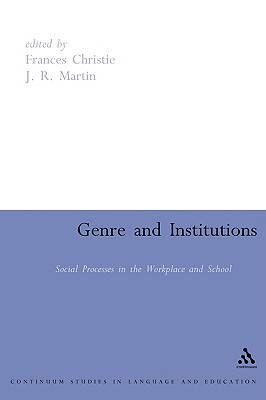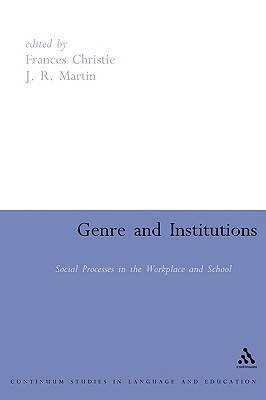
- Retrait gratuit dans votre magasin Club
- 7.000.000 titres dans notre catalogue
- Payer en toute sécurité
- Toujours un magasin près de chez vous
- Retrait gratuit dans votre magasin Club
- 7.000.0000 titres dans notre catalogue
- Payer en toute sécurité
- Toujours un magasin près de chez vous
Description
This book examines genres as instances of social processes, enacting a range of important institutional practices, hence also shaping people's subjectivities. Genres represent purposive and staged ways of building means in a culture. The book's particular claim to originality is that, using systemic functional grammar, it demonstrates how given genres build or enact social practice, how educational setting provide contexts in which some apprenticeship into such genres occurs, and how theorizing about such matters helps build a theory of social action, revealing how powerful is the systemic functional analysis in addressing questions concerning the social construction of reality.
The discussion is built around extensive analysis of instances of texts collected in a number of worksites and school settings. While most are instances of written genres, some are spoken, most notably the chapter that is devoted to the discussion of the spoken classroom texts in which the teaching and learning of the written genres take place.Spécifications
Parties prenantes
- Auteur(s) :
- Editeur:
Contenu
- Nombre de pages :
- 272
- Langue:
- Anglais
- Collection :
Caractéristiques
- EAN:
- 9780826478696
- Date de parution :
- 17-11-05
- Format:
- Livre broché
- Format numérique:
- Trade paperback (VS)
- Dimensions :
- 161 mm x 232 mm
- Poids :
- 548 g

Les avis
Nous publions uniquement les avis qui respectent les conditions requises. Consultez nos conditions pour les avis.






